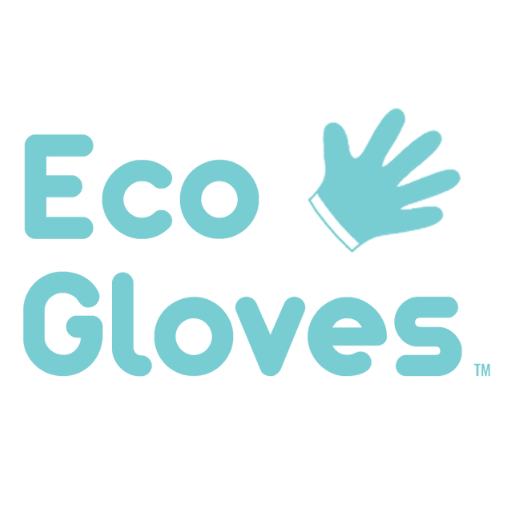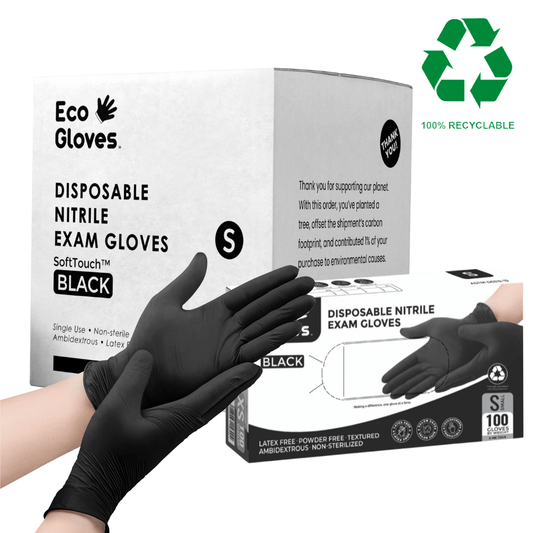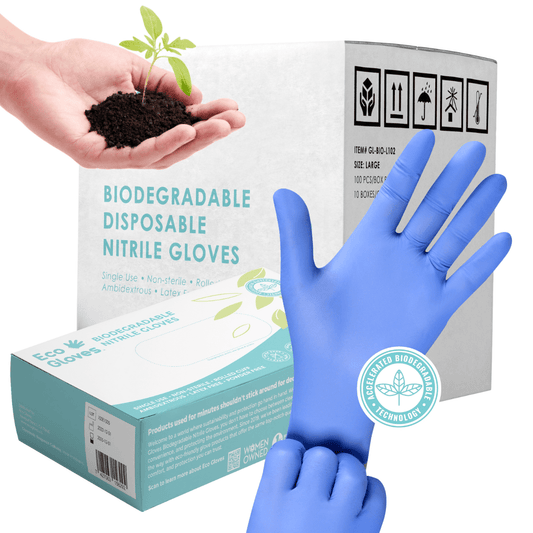How to Divert 65 Million Pounds of Glove & Packaging Waste in the US Food Industry Today
Eco Gloves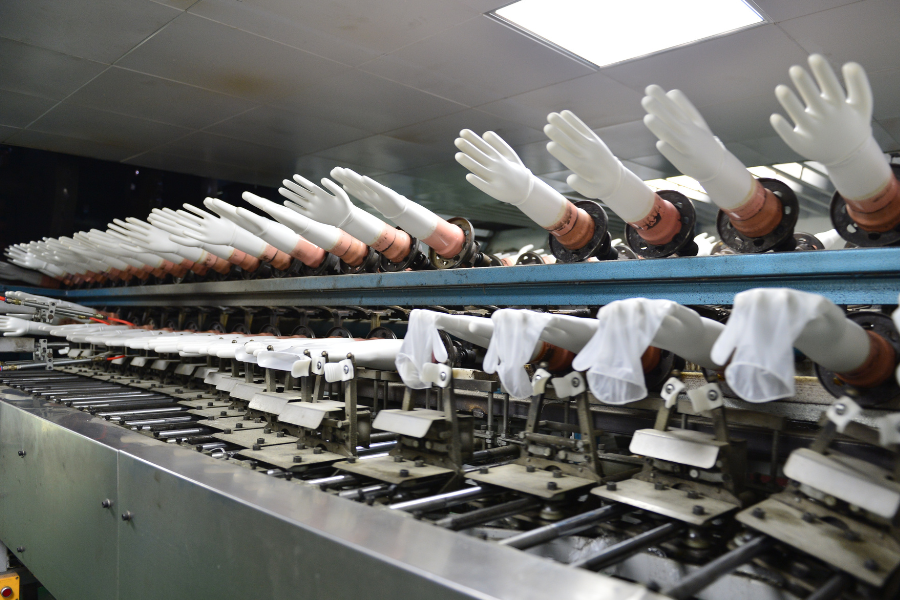
Disposable gloves and packaging are indispensable in the food industry, serving as a vital barrier for food safety and hygiene. However, the environmental impact of these gloves and packaging, particularly those made from vinyl (PVC) and other synthetic ingredients, raises concerns regarding waste generation and chemical pollutants.
Topics Covered
- The Concern with Vinyl Gloves and other Synthetic Materials
- A Path to Significant Glove Waste Reduction in the US Food Industry
- Opportunities for Waste Reduction in Packaging
- Don't Undermine the Power of Consumer Education and Engagement
- Key Takeaways: Cutting Glove & Packaging Waste in the Food Industry
-
Frequently Asked Questions About Reducing Glove & Packaging Waste in the Food Industry
The Concern with Vinyl Gloves and other Synthetic Materials
The US food industry utilizes around 30 billion disposable gloves annually, with vinyl (PVC) gloves constituting 45-75 percent of this usage. Numerous studies have raised concerns about vinyl gloves, such as their potential health risks, ineffectiveness as barriers against bacteria and viruses, and considerable waste generation. Approximately 160 million pounds of vinyl waste is produced annually in the food industry, equivalent to filling more than 150 Olympic-size swimming pools.
A Path to Significant Glove Waste Reduction in the US Food Industry
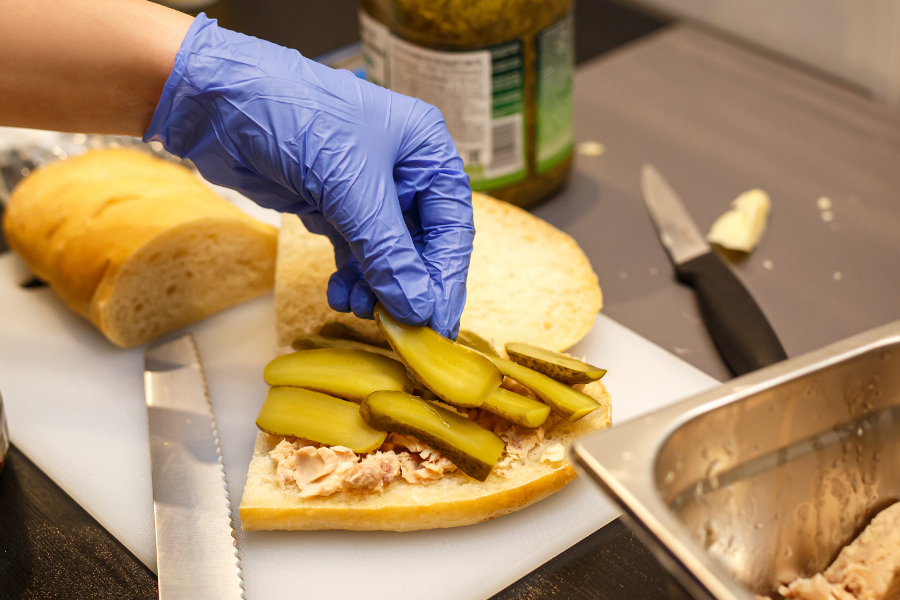
One avenue for improvement lies in transitioning to eco-friendly glove alternatives. Innovative materials such as compostable poly, biodegradable nitrile, or latex, made for accelerated biodegradability or sourced from sustainable and renewable resources, offer comparable performance while reducing environmental harm. These eco-friendly glove options not only minimize waste but also address concerns related to harmful chemicals and pollutants associated with vinyl gloves.
By switching to biodegradable and compostable options, food industry establishments can reap immediate waste reduction benefits, including:
- A 50 million pound decrease in annual glove waste
- A 15 million pound decrease in annual packaging waste
This equates to the conservation of over 5,000 shipping containers, diversion of 65 swimming pools worth of gloves from landfills, and a reduction of carbon emissions by 6000 metric tons.
Moreover, investing in glove recycling programs presents an opportunity for the food industry to minimize its environmental footprint. Collaborating with glove manufacturers or waste management companies to establish collection and recycling initiatives can divert used gloves from landfills, contributing to a circular economy approach.
Furthermore, optimizing glove usage practices can lead to significant waste reduction. Implementing proper glove selection guidelines, training employees on appropriate glove usage, and promoting glove reuse where feasible can help mitigate unnecessary waste generation.
Opportunities for Waste Reduction in Packaging

The food industry can further reduce waste by assessing its current packaging materials and adopting sustainable options, such as reducing unnecessary packaging and similarly exploring reusable, biodegradable, or compostable alternatives. These materials, derived from renewable resources such as plant-based plastics or compostable fibers, offer a more environmentally friendly alternative to traditional petroleum-based plastics. By choosing compostable packaging, companies can minimize their contribution to landfill waste and support the transition to a circular economy.
Additionally, the implementation of packaging innovations, such as lightweight designs and minimalist packaging, can further reduce material usage and transportation emissions. Streamlining packaging processes and investing in efficient packaging machinery can also yield cost savings and environmental benefits.
Collaboration across the supply chain is crucial for driving sustainable change in disposable packaging. Food manufacturers can work closely with packaging suppliers to develop innovative solutions that meet both sustainability and performance requirements. Furthermore, partnerships with waste management companies can facilitate the recycling or composting of packaging materials, closing the loop on the product lifecycle.
Don't Undermine the Power of Consumer Education and Engagement
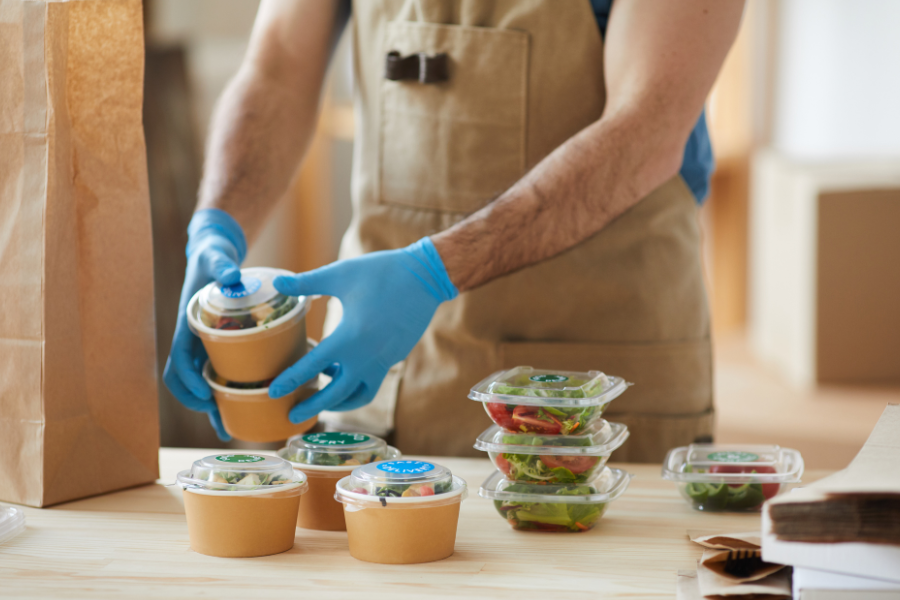
Consumer education and engagement are essential components of driving sustainable change in disposable glove practices. By raising awareness about the environmental impact of disposable gloves and packaging, and promoting sustainable alternatives, food businesses can empower consumers to make environmentally conscious choices. Additionally, transparent labeling and packaging certifications can help consumers make informed purchasing decisions and support brands committed to sustainability.
According to the Sustainable Development Goal 12 on Responsible Consumption and Production, the goal is to "substantially reduce waste generation through prevention, reduction, recycling and reuse” by 2030. The food industry has a significant opportunity to reduce glove and packaging waste by over 65 million pounds annually by embracing equally cost-effective alternatives.
To combat these issues Eco Gloves focuses on waste reduction through prevention, recycling, and reuse. Eco Gloves offers sustainable alternatives vinyl and traditionally polluting gloves in the form of biodegradable and compostable gloves. By choosing sustainable glove options, businesses can ensure safety, minimize environmental impact, and protect staff and customers.
Key Takeaways: Cutting Glove Packaging Waste in the Food Industry
-
Vinyl Gloves Create Significant Waste – The US food industry uses 30B disposable gloves annually, producing over 160M pounds of vinyl waste.
-
Eco-Friendly Gloves Reduce Impact – Compostable poly, biodegradable nitrile, and latex alternatives can cut glove waste by 50M pounds per year.
-
Sustainable Packaging Adds More Savings – Switching to compostable or reusable packaging can remove an additional 15M pounds of waste annually.
-
Circular Economy Practices Work – Recycling programs and reusable systems help divert millions of gloves and packaging from landfills.
-
Proper Usage Reduces Overconsumption – Training, correct glove selection, and optimized usage prevent unnecessary waste.
-
Consumer Awareness Drives Change – Education, clear labeling, and transparency help customers support sustainable food service practices./
👉 By switching to sustainable glove and packaging solutions, the US food industry can divert over 65 million pounds of waste every year—saving costs, reducing emissions, and protecting the planet.
Frequently Asked Questions About Reducing Glove Packaging Waste in the Food Industry
-
Why focus on vinyl gloves in waste reduction efforts?
Vinyl gloves make up 45–75% of glove use in the US food industry and contribute over 160M pounds of waste annually.
-
How can biodegradable gloves reduce waste?
They break down more quickly than vinyl or traditional nitrile gloves and emit fewer harmful chemicals during production and disposal.
-
Can sustainable packaging make a big difference?
Yes. Switching to compostable or reusable packaging can eliminate millions of pounds of landfill waste while cutting transportation emissions.
-
What is a glove recycling program?
A system where used gloves are collected, processed, and recycled into new materials, reducing landfill contributions and supporting a circular economy.
-
How can food businesses optimize glove usage?
Train staff on proper glove selection, use gloves only when necessary, and avoid unnecessary changes between tasks when safe to do so.
Related Reading
- The Eco Gloves Advantage: Premium Quality, Sustainability, and Value.
- Choosing the right Eco-Friendly Gloves for Your Needs.
- Ethical Manufacturing and Sustainability in the Gloves Industry: Why It Matters and How to Identify It.
